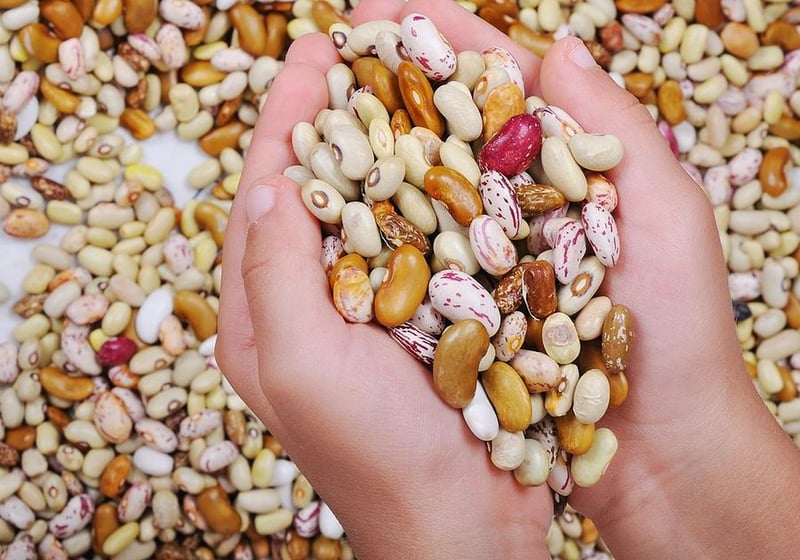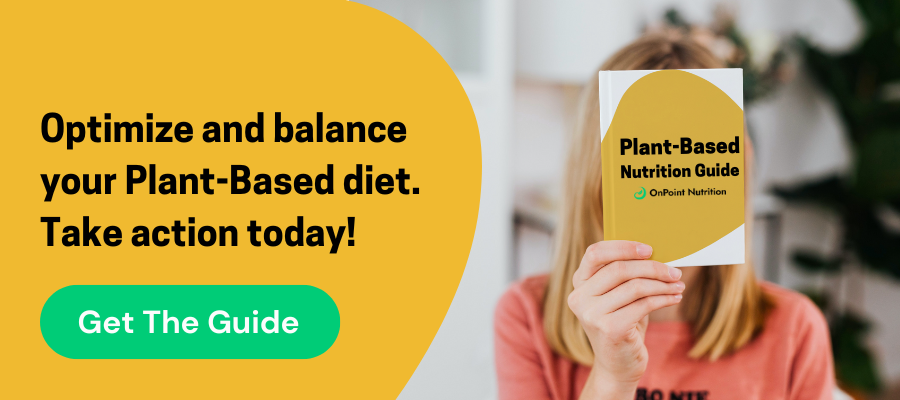
A few things you may be wondering include, “What carbohydrates should I be eating on a vegan diet?”, “Can I follow a vegan low carbohydrate diet?”, or “What are the best sources of carbohydrates for my vegan diet?”... All of which are great questions. The most important concepts of a vegan diet is FOOD QUALITY, especially for carbohydrates.
Your body's main energy source is carbohydrates, so they are a key part of any diet. However, carbohydrate quality is very important in building a high quality vegan or vegetarian diet. High quality carbohydrates contain many essential nutrients, including vitamins, minerals, fiber, and antioxidants, which all contribute to your good overall health.
You should avoid the following carbohydrates sources:
- Highly processed or refined foods, including
- White bread
- Pastries
- Sodas
- White pasta, etc.
These carbohydrates tend to increase blood sugar levels, lack nutrients such as fiber, and may contain added sugars.
Let’s review the high-quality carbohydrates you should be eat daily as part of your vegan or vegetarian diet.
Complex Carbohydrates
First, focus on complex carbohydrates. Complex carbohydrate foods include fiber and protein, which allow the food to be digested more slowly compared to simple carbohydrates. Your body will stay full for longer if you eat fiber-rich carbohydrates. Complex carbohydrates also help your body regulate blood sugar spikes.
Unprocessed Foods
These foods include whole fruits, whole grains, starchy vegetables, and legumes as fiber-rich carbohydrate foods. These minimally processed, whole-plant carbohydrate sources are staples for a vegan diet. The carbohydrates you should limit include low fiber carbohydrates such as refined grains (including white bread and white rice), simple sugars found in sweets and juices, and processed foods.
Key factors to look for:
Whole Fruits
Whole sources of fruits such as bananas, apples, oranges, kiwi, melons, berries, pears, pineapple, etc. give you a natural source of energy as well as fiber and a wide variety of vitamins and minerals.
Not only do whole sources of fruit provide natural carbohydrates for energy, the nutrients in fruit help to support your immune system, reduce inflammation, and improve your gut health. The fiber in fruit helps to improve cholesterol as well as stabilize blood sugar.
Whole Grains
Oats, brown rice, quinoa, buckwheat, millet, barley, spelt, etc. are complex carbohydrates that contain fiber and protein- they take longer for your body to digest.
Whole grains help to keep you satisfied because their fiber and protein content is preserved in its whole form, i.e. the grain was not processed or stripped of any nutrients (think brown rice vs. white rice). A diet rich in whole grains is linked to lower risks of diseases such as cancer, diabetes, and heart disease.
Non-starchy Vegetables
When in doubt, fill up on non-starchy vegetables to boost your fiber intake while providing a small amount of carbohydrates and a large amount of nutrients!
Non-starchy vegetables are naturally low in calories and provide many health benefits, including improved cardiovascular health, lower blood pressure, healthy weight, and stable GI health. Non-starchy vegetables also help prevent many chronic diseases. Try to eat a variety of non-starchy vegetables to ensure you are getting a variety of nutrients such as potassium, folate, vitamin A, vitamin C, and more.
Starchy Vegetables
Unprocessed starchy vegetables such as winter squashes, potatoes, sweet potatoes, corn, and peas, contain fiber and protein. They also contain other nutrients, including potassium, vitamin K, and antioxidants.
Try to include multiple starchy vegetable servings daily, depending on your specific dietary needs. Starchy vegetables tend to be more nutrient dense and filling compared to other processed starches (pretzels, crackers, white rice and pasta).
Lentils, peas, chickpeas, beans and edamame
These foods are great carbohydrate sources rich in protein, fiber, and nutrients such as iron, magnesium, and folate. Legumes are associated with heart health, appetite control, regulating blood sugar, and weight management.
On a vegan diet, you will rely on legumes as not only one of your carbohydrate sources, but also one of your main protein sources. Aim for multiple servings of legumes per day to meet your protein target as well as meeting your intake for essential minerals.
You can add legumes to salads, soups, stews, snacks, or meat substitutes.
Best Healthy Carbohydrate Vegan Recipes
If you’re looking for a lower carbohydrate meal rich with plant-based protein and fiber, look no further! This Asian Edamame Salad is packed with flavor and crunch from vegetables, nuts, and edamame.
Looking for a dish containing legumes and a starchy vegetable while keeping your total carbohydrates to a minimum? This Healthy Vegetarian Bean Chili is the way to go. The beans provide a significant amount of protein, which helps reduce the total carbohydrate count, while the corn adds extra fiber in this comforting meal.
Are you missing pasta, but need more plant-based protein? This Mediterranean Pasta uses Banza pasta, made from chickpeas! This will ensure you are boosting your protein and fiber intake, while managing your carbohydrates.
Looking for a dinner meal with a whole grain carbohydrate to help keep you fuller longer? This Sweet Chili Lime Tofu Bowl contains carbohydrates from brown rice paired with tofu and veggies to end the day!
What to Do Next
No need to fear carbohydrates! But remember, quality matters!
Make sure to include whole fruits, whole grains, vegetables (starchy and non-starchy), and legumes every day as part of a vegan or vegetarian diet. These carbohydrates are going to provide fiber and essential nutrients for energy and many ancillary health benefits.
Talk with your dietitian or nutritionist to find out your individualized goals and targets to create a plan that fits with your lifestyle!





